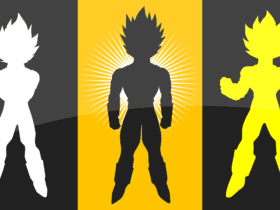The Omicron variant is sweeping the planet and is becoming the dominant strain everywhere. Signs to spot it might appear in various ways, including those in your eyes, head, and ears.
In fact, among of the most common signs of Covid include fever or chills, a cough, and a loss of taste or smell, but there are other clues as well.
The new variant was initially identified by the World Health Organization (WHO) in November of last year, and one worry has been how much it may diminish vaccination effectiveness.
Spotting the signs and isolating yourself if you see them may help halt the variation’s spread.
According to NHS guidelines on Covid infection, Vertigo is common with viral illnesses because you are weaker and worn down because the virus has impacted the vestibular system, the connection between your inner ear and your brain.
According to the article, if your vestibular system is impaired, you may have dizziness while moving your head, notice a lot of movement in front of your eyes, and when you shift position fast, your balance may be impacted.
Dizziness may also be associated with ringing in the ears, decreased hearing, eye strain, and headaches, it continues.
These may appear and disappear during the day. If they are persistent or severe, you should notify your healthcare provider, as they may wish to do more tests.
Other More of Less Common Symptoms You May Encounter
NHS added it is highly typical for patients with a respiratory infection, such as Covid, to feel breathless both during the acute phase of the sickness and when recuperating.
It says that weariness is fairly frequent following viral infections like Covid and that it usually goes away within two or three weeks.
You may also have a loss of smell due to your Covid infection.
According to the Centers for Disease Control and Prevention (CDC), patients infected with COVID-19 have experienced a broad spectrum of symptoms.
These symptoms may vary from mild to severe, and some may need medical intervention.
According to the organization, symptoms may occur two to 14 days after being exposed to the virus, and anybody can have moderate to severe symptoms.
Signs include shortness of breath or trouble breathing, weariness, muscle or body pains, a headache or sore throat, congestion or runny nose, and nausea or vomiting.
If you develop any of the following COVID-19 symptoms, even if they are minor, health authorities recommend that you self-isolate right immediately and have a PCR test.
The health organization advises self-isolating even if you’ve already had a positive test result for COVID-19.
You most likely have some protection from the virus, but it’s unclear how long it will remain.
The government encourages individuals to be vaccinated with a booster dose, which has been demonstrated to increase protection significantly.
Indeed, according to the most recent data from the UK Health Security Agency, booster dosages continue to give substantial levels of protection against serious illness caused by the Omicron form in older persons.
Figures reveal that three months after receiving the third vaccination, protection against hospitalization among people aged 65 and over is still approximately 90 percent.
With two doses of the vaccine, protection against severe illness reduces to roughly 70% after three months and 50% after six months.












Leave a Reply